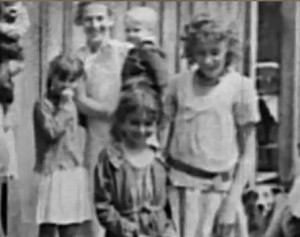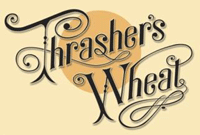Album Review: The Globe and Mail
DISC OF THE WEEK
Neil Young reinvents songs the old-fashioned way
ROBERT EVERETT-GREEN
The Globe and Mail
Published Friday, Jun. 01 2012, 5:00 PM EDT, Last updated Saturday, Jun. 02 2012, 3:09 PM EDT
Long before sampling came along, there was an even more dynamic process for reusing and rearranging the materials of existing songs. It was called folk music.
Folk music in that sense began to disappear when scholars started noting down songs that had existed only in people’s shared recollection. The ancient ballad known as The Maid Freed from the Gallows had several other names in other languages, and other tunes and lyrics too, before the Harvard folklorist Francis Child studied its American variants in the 19th century.
Neil Young’s new disc with Crazy Horse celebrates the fluidity of the folk process, and implies that a good transformative cover carries on that tradition. The album includes heavy blues-rock versions of genuinely old songs such as Clementine and Gallows Pole (Young’s version of the ballad studied by Child), and of fifties radio hits such as Get a Job and Travel On.
Young’s Clementine is a towering, doom-laden number with only a ghostly trace of the lilting dance rhythm most people know. He focuses your mind on the fact that the narrator’s darling ends up dead – the latter half of this lengthy track is one long lament. In Tom Dula (a.k.a. Tom Dooley), Young simplifies the familiar rhythm and bears down for eight minutes on the murder and the execution that will pay for it. For Oh Susannah, he sets aside the jaunty Stephen Foster original and covers the raw variant recorded as The Banjo Song by the Big Three in 1963 (cunningly reworked as Venus by Shocking Blue in 1969). Jesus’s Chariot goes back to the spiritual that became She’ll Be Coming ’Round the Mountain, with a simplified melody and lots of heavy grinding on the song’s tonic root.
Throughout the album, Young’s vocals strive for something primal and true beneath the songs’ familiar surface. His slurry yet precise electric-guitar solos move powerfully through the darkest lyrical moods.
After a few of these intense, gloomy performances, you sense that this project is partly a belated retort to the mellowing tendencies of groups like the Kingston Trio, whose wistful Tom Dooley was a No. 1 hit in 1958. Lead Belly’s 1939 recording of Gallows Pole, by contrast, was about as raw and scary as they come. Young’s version, while still dark, has a jauntier gait and an almost comic feeling when he yelps out the repeated line, “Did you come to see me hang?”
In This Land Is Your Land, Young foregrounds Woody Guthrie’s seldom-heard political verses, and omits the more pastoral ones. But surely Guthrie’s point in combining the two was to contrast the beauty of the land with the ugliness of what sometimes goes on there.
The newest numbers, Get a Job and Travel On, feel stodgy compared to the Silhouettes’ 1957 version of the former, and Billy Grammer’s live rockabilly performances of the latter. Crazy Horse fans will probably get a kick out of hearing this revered and rugged ensemble sing doo-wop, but their tools aren’t the best for the job.
The closing number, God Save the Queen, seems like a surprising choice for a disc called Americana, till a children’s choir chimes in with verses from America (“land of the Pilgrims’ pride”) that were laid on the English tune in 1831. It would have been fun to hear Young sing a little of the German variant: Under Kaiser Wilhelm II, this song was known as Heil dir im Siegerkranz and was used as the German anthem right through the First World War. How’s that for a transformative cover?









